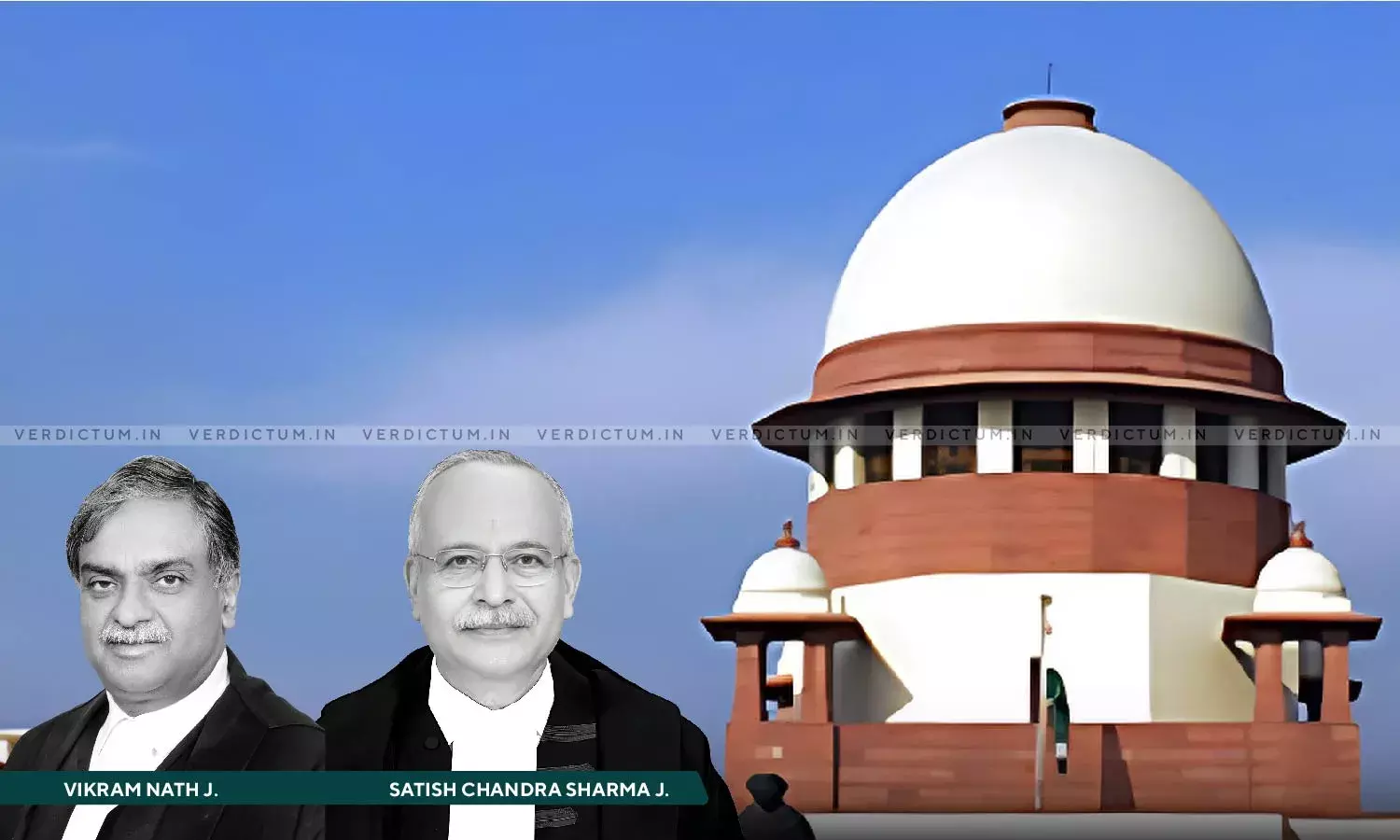"Challenge State Laws": SC Refuses To Entertain Plea Challenging Demand Of Border Tax & Authorization Fee By State Governments From Tour Operators
The Supreme Court refused to interfere with the petitions that challenged the demand for Border Tax/Authorization Fee by State Governments from various transporters and tour operators.
The court said that if the State enactments, rules, and regulations are not challenged it cannot be said that the demand for Border Tax/Authorization Fee at the borders by the respective State Governments is bad under law.
The Court was hearing a batch of Petitions filed by the transporters and tour operators under Article 32 of the Constitution of India assailing the legality of different State Governments levying and collecting Authorization Fee/Border Tax in violation of All India Tourist Vehicles (Permit) Rules, 2023.
The bench of Justice Vikram Nath and Justice Satish Chandra Sharma observed, “The State enactments, rules and regulations being not under challenge, it cannot be said that the demand of Border Tax/Authorization Fee at the borders by the respective State Governments is bad under law. The petitioners, in order to succeed, have to consider challenging the State provision contained in the Act.”
In the present case, several States were complained of realising the Border Tax/ Authorization Fee despite the transporters or the vehicles entering the State having already paid the requisite tax/fee under the Rules, 2023.
The Court considered the fundamental question of whether levy and realisation of taxes by the respective states is covered by the Act and Rules framed by the respective States under Entries 56 & 57 of List II of Schedule VII of the Constitution or not and went on to uphold the demand of Border Tax/Authorization Tax.
The Court further said that the petitioners ought to have first approached their jurisdictional High Courts to challenge their respective State enactments before approaching under Article 32 of the Constitution.
Accordingly, the Court disposed of the petitions without interfering with the demands being raised by the State Governments while giving liberty to the petitioners to approach the jurisdictional High Courts for their reliefs.



